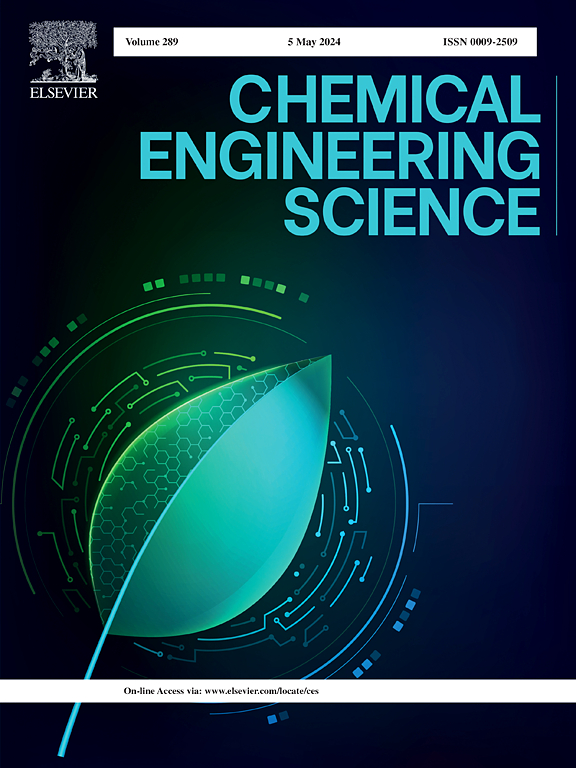A comprehensive approach to incorporating intermolecular dispersion into the openCOSMO-RS model. Part 1. Halocarbons
IF 4.3
2区 工程技术
Q2 ENGINEERING, CHEMICAL
引用次数: 0
Abstract
The COSMO-RS (Conductor-like Screening Model for Real Solvents) is a predictive thermodynamic model that has found diverse applications in various domains like chemical engineering, environmental chemistry, nanotechnology, material science, and biotechnology. Its core concept involves calculating the screening charge density on the surface of each molecule and letting these surface patches interact with each other to calculate thermodynamic properties. In this study, we aim to enhance the performance of the open-source implementation openCOSMO-RS by incorporating dispersive interactions between the paired segments. Several parametrizations were systematically evaluated through the extensive regression analysis using a comprehensive database of Vapor-Liquid Equilibrium (VLE), Liquid-Liquid Equilibrium (LLE) and Infinite Dilution Activity Coefficients (IDACs). Furthermore, the influence of different combinatorial terms on the model performance was investigated. Our findings indicate that incorporating dispersive interactions significantly improves the accuracy of phase equilibrium predictions for halocarbons and refrigerant mixtures.
将分子间分散纳入opencosmos - rs模型的综合方法。第一部分:卤代烃
cosmos - rs(真实溶剂类导体筛选模型)是一种预测热力学模型,在化学工程、环境化学、纳米技术、材料科学和生物技术等各个领域都有广泛的应用。其核心概念包括计算每个分子表面的筛选电荷密度,并让这些表面斑块相互作用以计算热力学性质。在这项研究中,我们的目标是通过结合成对片段之间的色散相互作用来提高开源实现opencosmos - rs的性能。利用汽液平衡(VLE)、液液平衡(LLE)和无限稀释活度系数(IDACs)的综合数据库,通过广泛的回归分析,系统地评估了几个参数化。进一步研究了不同组合项对模型性能的影响。我们的研究结果表明,纳入色散相互作用显着提高了卤代烃和制冷剂混合物相平衡预测的准确性。
本文章由计算机程序翻译,如有差异,请以英文原文为准。
求助全文
约1分钟内获得全文
求助全文
来源期刊

Chemical Engineering Science
工程技术-工程:化工
CiteScore
7.50
自引率
8.50%
发文量
1025
审稿时长
50 days
期刊介绍:
Chemical engineering enables the transformation of natural resources and energy into useful products for society. It draws on and applies natural sciences, mathematics and economics, and has developed fundamental engineering science that underpins the discipline.
Chemical Engineering Science (CES) has been publishing papers on the fundamentals of chemical engineering since 1951. CES is the platform where the most significant advances in the discipline have ever since been published. Chemical Engineering Science has accompanied and sustained chemical engineering through its development into the vibrant and broad scientific discipline it is today.
 求助内容:
求助内容: 应助结果提醒方式:
应助结果提醒方式:


